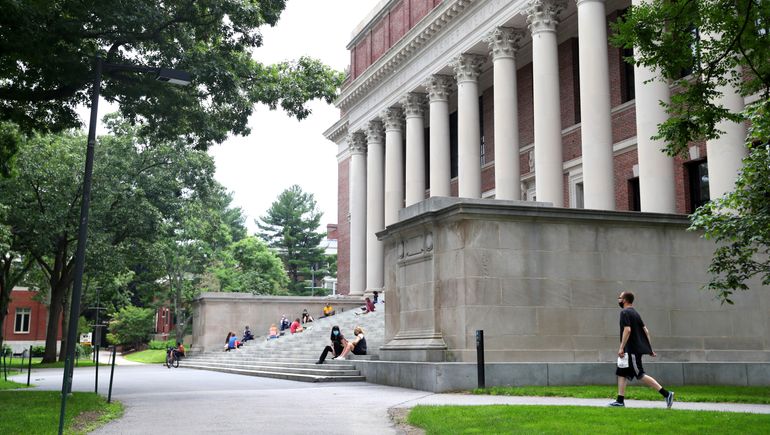Dive Brief:
- Rep. Jason Smith, chair of the House Ways and Means Committee, launched a probe into four top-ranked universities this week over their responses to antisemitism on their campuses.
- The committee is looking into Harvard University, the University of Pennsylvania, Cornell University and the Massachusetts Institute of Technology. In a letter to the four universities’ leaders, Smith questioned their tax-exempt status and whether they were fulfilling their nonprofit educational mission.
- The letter marks the latest inquiry House Republicans have launched into top-ranked colleges over their response to spiking antisemitism in the wake of the latest Israel-Hamas war.
Dive Insight:
The Ways and Means probe is the latest fallout from a congressional hearing in December, when the presidents of Harvard, Penn and MIT testified before House lawmakers on how they were handling campus antisemitism.
Critics widely panned the leaders of those three institutions for declining to give a yes-no answer when asked if calls for the genocide of Jewish people would be punished on their campus. Instead, they said such speech would violate their policies if it crossed the line into harassment or conduct.
Free speech scholars have backed this view.
But two of the three presidents who testified — Harvard’s Claudine Gay and Penn’s Elizabeth Magill — have since stepped down from their posts. Magill resigned four days after the hearing, while Gay left the presidency earlier this month amid a right-wing campaign accusing her of plagiarism.
The House Committee on Education and the Workforce, which conducted the hearing, launched a formal investigation in December into the three institutions.
In his Wednesday letter, Smith took issue with the three leaders’ testimonies during the December hearing. He also cited a Ways and Means Committee hearing in November, during which a Cornell student accused the Ivy League institution of failing to condemn explicit antisemitism.
Smith said all four universities had failed “to adequately protect Jewish students from discrimination and harassment.”
“This alarming conduct is not limited to statements made during congressional hearings,” Smith wrote.
He pointed to several recent incidents at each of the universities, including recent online posts threatening violence against Jewish students at Cornell.
In October, Cornell President Martha Pollack said that the university would work to ensure those responsible for the threats would be “punished to the full extent of the law.”
Later that month, the U.S. Attorney’s Office announced that police had arrested a 21-year-old Cornell student on charges of making threatening posts, including calling for the death of Jewish people. The FBI also said it’s continuing to investigate the matter.
Smith’s letter also accused the four universities of inconsistently protecting free speech on their campuses and argued that they had disciplined students and employees over other matters. He pointed to an effort at Penn to punish law professor Amy Wax, who has made controversial comments and brought a white supremacist to speak to her students.
“Ultimately, as the U.S. House Committee with primary jurisdiction over tax-exempt institutions and the treatment of their endowments, we are left to wonder whether reexamining the current benefits and tax treatment afforded to your institutions is necessary,” Smith wrote.
Smith requested that the universities provide their policies related to free speech rights and how their leaders decide when to issue statements in response to events. He also asked the institutions to detail the role of diversity, equity and inclusion programs on their campuses and whether these efforts serve Jewish students.
The universities have until Jan. 24 to respond.
Spokespeople for Harvard and Cornell said Wednesday that their institutions received the letter and will respond to the committee. Penn and MIT did not immediately respond to a request for comment.
